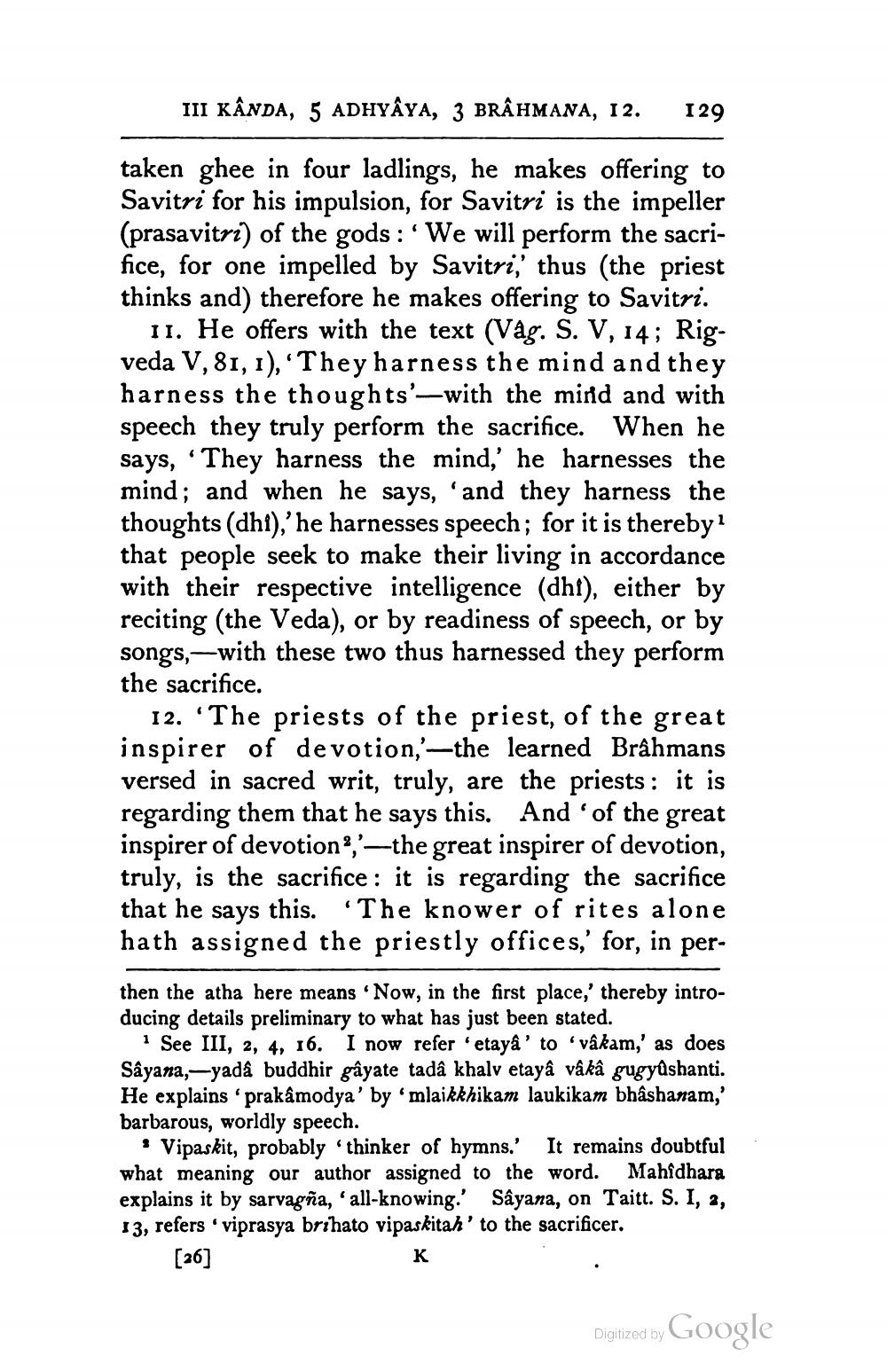________________
III KÂNDA, 5 ADHYAYA, 3 BRÂHMANA, 12.
129
taken ghee in four ladlings, he makes offering to Savitri for his impulsion, for Savitri is the impeller (prasavitri) of the gods: We will perform the sacrifice, for one impelled by Savitri,' thus (the priest thinks and) therefore he makes offering to Savitri.
11. He offers with the text (Vâg. S. V, 14; Rigveda V, 81, 1),‘They harness the mind and they harness the thoughts'—with the mind and with speech they truly perform the sacrifice. When he says, 'They harness the mind,' he harnesses the mind; and when he says, "and they harness the thoughts (dhi),'he harnesses speech; for it is thereby? that people seek to make their living in accordance with their respective intelligence (dht), either by reciting (the Veda), or by readiness of speech, or by songs,—with these two thus harnessed they perform the sacrifice.
12. 'The priests of the priest, of the great inspirer of devotion,'—the learned Brâhmans versed in sacred writ, truly, are the priests: it is regarding them that he says this. And of the great inspirer of devotion?,'—the great inspirer of devotion, truly, is the sacrifice: it is regarding the sacrifice that he says this. The knower of rites alone hath assigned the priestly offices,' for, in per
then the atha here means 'Now, in the first place,' thereby introducing details preliminary to what has just been stated.
See III, 2, 4, 16. I now refer "etayâ' to 'vâkam,' as does Sâyana, -yada buddhir gâyate tada khalv etayâ vâkâ gugyūshanti. He explains prakamodya' by 'mlaikkhikam laukikam bhashanam,' barbarous, worldly speech.
• Vipaskit, probably thinker of hymns.' It remains doubtful what meaning our author assigned to the word. Mahidhara explains it by sarvagña, 'all-knowing. Sâyana, on Taitt. S. I, 2, 13, refers 'viprasya brihato vipaskitah' to the sacrificer. [26]
K
Digitized by Google




